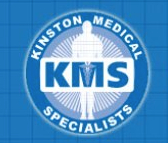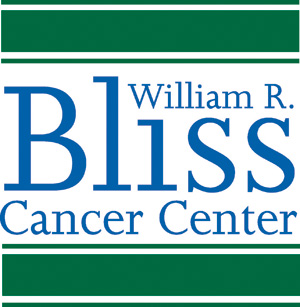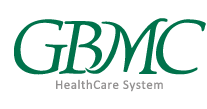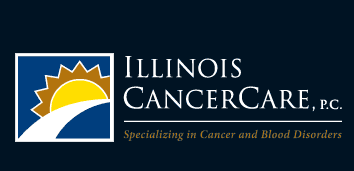Paclitaxel and Cisplatin or Topotecan With or Without Bevacizumab in Treating Patients With Stage IVB, Recurrent, or Persistent Cervical Cancer
| Status: | Completed |
|---|---|
| Conditions: | Cervical Cancer, Cancer, Women's Studies |
| Therapuetic Areas: | Oncology, Reproductive |
| Healthy: | No |
| Age Range: | 18 - Any |
| Updated: | 12/9/2017 |
| Start Date: | April 2009 |
| End Date: | February 2013 |
A Randomized Phase III Trial of Cisplatin Plus Paclitaxel With and Without NCI-Supplied Bevacizumab (NSC #704865) Versus the Non-platinum Doublet, Topotecan Plus Paclitaxel, With and Without NCI-Supplied Bevacizumab, in Stage IVB, Recurrent or Persistent Carcinoma of the Cervix
This randomized phase III trial studies the side effects of paclitaxel when given together
with cisplatin or topotecan with or without bevacizumab and to compare how well they work in
treating patients with stage IVB, cervical cancer that has come back or is persistent. Drugs
used in chemotherapy, such as paclitaxel, cisplatin, and topotecan, work in different ways to
stop the growth of tumor cells, either by killing the cells, by stopping them from dividing,
or by stopping them from spreading. Monoclonal antibodies, such as bevacizumab, may interfere
with the ability of tumor cells to grow and spread. It is not yet known whether paclitaxel is
more effective when given together with cisplatin or topotecan with or without bevacizumab in
treating patients with cervical cancer.
with cisplatin or topotecan with or without bevacizumab and to compare how well they work in
treating patients with stage IVB, cervical cancer that has come back or is persistent. Drugs
used in chemotherapy, such as paclitaxel, cisplatin, and topotecan, work in different ways to
stop the growth of tumor cells, either by killing the cells, by stopping them from dividing,
or by stopping them from spreading. Monoclonal antibodies, such as bevacizumab, may interfere
with the ability of tumor cells to grow and spread. It is not yet known whether paclitaxel is
more effective when given together with cisplatin or topotecan with or without bevacizumab in
treating patients with cervical cancer.
PRIMARY OBJECTIVES:
I. To determine whether the addition of bevacizumab to chemotherapy improves overall
survival. Also to determine if a regimen involving paclitaxel and topotecan improves overall
survival in comparison to a regimen involving cisplatin and paclitaxel. These regimens are to
be evaluated in patients with stage IVB, recurrent, or persistent carcinoma of the cervix.
II. To determine and compare the frequency and severity of adverse events as assessed by
Common Terminology Criteria for Adverse Events (CTCAE) version 3.0 for the regimens
administered on this study.
SECONDARY OBJECTIVES:
I. To estimate and compare the progression-free survival of patients treated by the regimens
investigated on this study.
II. To estimate and compare the proportion of patients with tumor responses by the regimens
investigated on this study.
TERTIARY OBJECTIVES:
I. To determine whether the addition of bevacizumab to chemotherapy, or the substitution of
cisplatin with topotecan improve the health related quality of life (QOL) as measured by the
Functional Assessment of Cancer Therapy-Cervix Trial Outcome Index scale (FACT-Cx TOI) and
produce favorable toxicity profiles (with a particular focus on peripheral neuropathy as
measured by the Functional Assessment of Cancer Therapy-Gynecologic Oncology
Group-Neurotoxicity version 4 [FACT/GOG-Ntx4] subscale and pain as measured by Brief Pain
Inventory [BPI] single item).
II. To evaluate the impact of age, race, performance status, stage, histology, grade, disease
site, prior chemotherapy with primary radiation, and time to recurrence on response rate,
progression-free survival and overall survival of patients with
metastatic/recurrent/persistent carcinoma of the cervix.
III. To determine the prevalence of active smoking in this cohort of recurrent cervical
cancer patients.
IV. To estimate the extent of tobacco/nicotine dependence in the cohort. V. To determine if
smoking is an independent risk factor for progression-free survival and overall survival in
this population.
VI. To isolate, enumerate and characterize circulating tumor cells (CTC) recovered from blood
drawn pre-cycle 1, pre-cycle 2 and pre-cycle 3 using the CTC-chip developed by the
Massachusetts General Hospital (MGH) BioMEMS Resource Center and the MGH Cancer Center.
VII. To determine the association between CTC counts or characteristics and measures of
clinical outcome.
VIII. To examine the association between angiogenesis markers in plasma (recovered from blood
drawn pre-cycle 1, pre-cycle 2 and pre-cycle 3) and measures of clinical outcome.
IX. To evaluate the association between tumor markers of angiogenesis and hypoxia (using
archival formalin-fixed and paraffin-embedded tumor tissue) and measures of clinical outcome.
X. To evaluate the association between single nucleotide polymorphisms (using
deoxyribonucleic acid [DNA] extracted from whole blood) and measures of clinical outcome as
well as measures of quality of life such as chemotherapy toxicity.
XI. To examine the relationship(s) among the various biomarkers. XII. To develop an optimal
prognostic model for progression-free survival and overall survival using clinical
covariates, smoking status and the various biomarkers.
OUTLINE: Patients are randomized to 1 of 4 treatment arms.
ARM I: Patients receive paclitaxel intravenously (IV) over 3 hours or 24 hours on day 1 and
cisplatin IV on day 1 or 2.
ARM II: Patients receive paclitaxel IV over 3 hours or 24 hours on day 1 and cisplatin IV and
bevacizumab IV over 30-90 minutes on day 1 or 2.
ARM III: Patients receive paclitaxel IV over 3 hours on day 1 and topotecan hydrochloride IV
over 30 minutes on days 1-3.
ARM IV: Patients receive paclitaxel IV over 3 hours and bevacizumab IV over 30-90 minutes on
day 1 and topotecan hydrochloride IV over 30 minutes on days 1-3.
In all arms, courses repeat every 21 days in the absence of disease progression or
unacceptable toxicity.
After completion of study treatment, patients are followed up every 3 months for 2 years and
then every 6 months for 3 years.
I. To determine whether the addition of bevacizumab to chemotherapy improves overall
survival. Also to determine if a regimen involving paclitaxel and topotecan improves overall
survival in comparison to a regimen involving cisplatin and paclitaxel. These regimens are to
be evaluated in patients with stage IVB, recurrent, or persistent carcinoma of the cervix.
II. To determine and compare the frequency and severity of adverse events as assessed by
Common Terminology Criteria for Adverse Events (CTCAE) version 3.0 for the regimens
administered on this study.
SECONDARY OBJECTIVES:
I. To estimate and compare the progression-free survival of patients treated by the regimens
investigated on this study.
II. To estimate and compare the proportion of patients with tumor responses by the regimens
investigated on this study.
TERTIARY OBJECTIVES:
I. To determine whether the addition of bevacizumab to chemotherapy, or the substitution of
cisplatin with topotecan improve the health related quality of life (QOL) as measured by the
Functional Assessment of Cancer Therapy-Cervix Trial Outcome Index scale (FACT-Cx TOI) and
produce favorable toxicity profiles (with a particular focus on peripheral neuropathy as
measured by the Functional Assessment of Cancer Therapy-Gynecologic Oncology
Group-Neurotoxicity version 4 [FACT/GOG-Ntx4] subscale and pain as measured by Brief Pain
Inventory [BPI] single item).
II. To evaluate the impact of age, race, performance status, stage, histology, grade, disease
site, prior chemotherapy with primary radiation, and time to recurrence on response rate,
progression-free survival and overall survival of patients with
metastatic/recurrent/persistent carcinoma of the cervix.
III. To determine the prevalence of active smoking in this cohort of recurrent cervical
cancer patients.
IV. To estimate the extent of tobacco/nicotine dependence in the cohort. V. To determine if
smoking is an independent risk factor for progression-free survival and overall survival in
this population.
VI. To isolate, enumerate and characterize circulating tumor cells (CTC) recovered from blood
drawn pre-cycle 1, pre-cycle 2 and pre-cycle 3 using the CTC-chip developed by the
Massachusetts General Hospital (MGH) BioMEMS Resource Center and the MGH Cancer Center.
VII. To determine the association between CTC counts or characteristics and measures of
clinical outcome.
VIII. To examine the association between angiogenesis markers in plasma (recovered from blood
drawn pre-cycle 1, pre-cycle 2 and pre-cycle 3) and measures of clinical outcome.
IX. To evaluate the association between tumor markers of angiogenesis and hypoxia (using
archival formalin-fixed and paraffin-embedded tumor tissue) and measures of clinical outcome.
X. To evaluate the association between single nucleotide polymorphisms (using
deoxyribonucleic acid [DNA] extracted from whole blood) and measures of clinical outcome as
well as measures of quality of life such as chemotherapy toxicity.
XI. To examine the relationship(s) among the various biomarkers. XII. To develop an optimal
prognostic model for progression-free survival and overall survival using clinical
covariates, smoking status and the various biomarkers.
OUTLINE: Patients are randomized to 1 of 4 treatment arms.
ARM I: Patients receive paclitaxel intravenously (IV) over 3 hours or 24 hours on day 1 and
cisplatin IV on day 1 or 2.
ARM II: Patients receive paclitaxel IV over 3 hours or 24 hours on day 1 and cisplatin IV and
bevacizumab IV over 30-90 minutes on day 1 or 2.
ARM III: Patients receive paclitaxel IV over 3 hours on day 1 and topotecan hydrochloride IV
over 30 minutes on days 1-3.
ARM IV: Patients receive paclitaxel IV over 3 hours and bevacizumab IV over 30-90 minutes on
day 1 and topotecan hydrochloride IV over 30 minutes on days 1-3.
In all arms, courses repeat every 21 days in the absence of disease progression or
unacceptable toxicity.
After completion of study treatment, patients are followed up every 3 months for 2 years and
then every 6 months for 3 years.
Inclusion Criteria:
- Patients must have primary stage IVB, recurrent or persistent squamous cell carcinoma,
adenosquamous carcinoma, or adenocarcinoma of the cervix which is not amenable to
curative treatment with surgery and/or radiation therapy
- All patients must have measurable disease; measurable disease is defined as at least
one lesion that can be accurately measured in at least one dimension (longest
dimension to be recorded); each lesion must be >= 20 mm when measured by conventional
techniques, including palpation, plain x-ray, computed tomography (CT), and magnetic
resonance imaging (MRI), or >= 10 mm when measured by spiral CT; biopsy confirmation
is required if the lesion(s) measures < 30 mm or if the treating physician determines
it is clinically indicated; patients must have at least one "target lesion" to be used
to assess response on this protocol as defined by Response Evaluation Criteria in
Solid Tumors (RECIST); this lesion should be the one that was biopsied if one was
performed; tumors within a previously irradiated field will be designated as
"non-target" lesions unless progression is documented or a biopsy is obtained to
confirm persistence at least 90 days following completion of radiation therapy
- Absolute neutrophil count (ANC) >= 1500/mcl
- Platelets >= 100,000/mcl
- Serum creatinine =< upper limit of normal (ULN) (Common Toxicity Criteria [CTC] grade
0) or calculated creatinine clearance (Jeliffe formula) >= 60 ml/min
- Bilirubin =< 1.5 x institutional normal
- Serum glutamic oxaloacetic transaminase (SGOT) =< 2.5 x institutional normal
- Alkaline phosphatase =< 2.5 x institutional normal
- Prothrombin time (PT) such that international normalized ratio (INR) is =< 1.5 (or an
in-range INR, usually between 2 and 3, if a patient is on a stable dose of therapeutic
warfarin for management of venous thrombosis including pulmonary thrombo-embolus)
- Partial thromboplastin time (PTT) < 1.2 times the upper limit of normal
- Urine protein-creatinine ratio (UPC ratio) < 1.0
- Patients must have a GOG performance status of 0 or 1
- Patients must have recovered from the effects of surgery, radiation therapy, or
chemoradiotherapy; at least six weeks must have elapsed from the last administration
of chemoradiotherapy, and at least three weeks must have elapsed from the last
administration of radiation therapy alone; at least six weeks must have elapsed from
the time of any major surgical procedure prior to randomization
- Patients must have signed an approved informed consent and authorization permitting
release of personal health information
- Patients must meet all of the pre-entry requirements, including baseline QOL
questionnaire
- Patients must be free of active infection requiring antibiotics
Exclusion Criteria:
- Patients with bilateral hydronephrosis which cannot be alleviated by ureteral stents
or percutaneous drainage
- Patients previously treated with chemotherapy except when used concurrently with
radiation therapy
- Patients who have received concurrent paclitaxel and/or concurrent topotecan with
radiation therapy are ineligible
- Patients with craniospinal metastases
- Patients with a concomitant malignancy other than non-melanoma skin cancer
- Patients with a prior invasive malignancy (except non-melanoma skin cancer) who have
had any evidence of disease within the last 5 years or whose prior malignancy
treatment contraindicates the current protocol therapy
- Patients with serious non-healing wound, ulcer, or bone fracture; this includes
history of abdominal fistula, gastrointestinal perforation or intra-abdominal abscess
for which an interval of 3 to 6 months must pass before study entry; in addition, the
patient must have undergone correction (or spontaneous healing) of the
perforation/fistula and/or the underlying process causing the fistula/perforation;
patients with granulating incisions healing by secondary intention with no evidence of
fascial dehiscence or infection are eligible but require weekly wound examinations
- Patients with active bleeding or pathologic conditions that carry high risk of
bleeding, such as known bleeding disorder, coagulopathy, or tumor involving major
vessels
- Patients with history or evidence upon physical examination of central nervous system
(CNS) disease, including primary brain tumor, seizures not controlled with standard
medical therapy, any brain metastases, or history of cerebrovascular accident (CVA,
stroke), transient ischemic attack (TIA) or subarachnoid hemorrhage within six months
of the first date of treatment on this study
- Patients with clinically significant cardiovascular disease; this includes:
- Uncontrolled hypertension, defined as systolic > 150 mm Hg or diastolic > 90 mm
Hg
- Myocardial infarction or unstable angina < 6 months prior to registration
- New York Heart Association (NYHA) grade II or greater congestive heart failure
- Serious cardiac arrhythmia requiring medication; this does not include
asymptomatic, atrial fibrillation with controlled ventricular rate
- CTCAE grade 2 or greater peripheral vascular disease (at least brief [< 24 hours
(hrs)]) episodes of ischemia managed non-surgically and without permanent
deficit)
- History of CVA within six months
- Patients with known hypersensitivity to Chinese hamster ovary cell products or other
recombinant human or humanized antibodies
- Patients with or with anticipation of invasive procedures as defined below:
- Major surgical procedure, open biopsy or significant traumatic injury within 28
days prior to the first date of bevacizumab therapy
- Major surgical procedure anticipated during the course of the study; this
includes, but is not limited to abdominal surgery (laparotomy or laparoscopy)
prior to disease progression, such as colostomy or enterostomy reversal, interval
or secondary cytoreductive surgery, or second look surgery; please consult with
the study chair prior to patient entry for any questions related to the
classification of surgical procedures
- Core biopsy, within 7 days prior to randomization
- Patients who are pregnant or nursing; bevacizumab should not be administered to
pregnant women; bevacizumab should not be administered to nursing women; patients of
childbearing potential must agree to use contraceptive measures during study therapy
and for at least six months after completion of bevacizumab therapy
- Patients who have received prior therapy with any anti-vascular endothelial growth
factor (VEGF) drug, including bevacizumab
- Patients with clinical symptoms or signs of gastrointestinal obstruction and who
require parenteral hydration and/or nutrition
- Patients with medical history or conditions not otherwise previously specified which
in the opinion of the investigator should exclude participation in this study; the
investigator should feel free to consult the Study Chair or Study Co-Chairs for
uncertainty in this regard
- Patients with significant peripheral vascular disease
- Patients with pre-existing grade 2 or greater peripheral neuropathy
We found this trial at
544
sites
Click here to add this to my saved trials
1201 Camino de Salud Northeast
Albuquerque, New Mexico 87131
Albuquerque, New Mexico 87131
(505) 272-4946

University of New Mexico Cancer Center It’s been 40 years since the New Mexico State...
Click here to add this to my saved trials
Brigham and Women's Hosp Boston’s Brigham and Women’s Hospital (BWH) is an international leader in...
Click here to add this to my saved trials
Tufts Medical Center Tufts Medical Center is an internationally-respected academic medical center – a teaching...
Click here to add this to my saved trials
University of North Carolina at Chapel Hill Carolina’s vibrant people and programs attest to the...
Click here to add this to my saved trials
Click here to add this to my saved trials
166 Stoneridge Drive
Columbia, South Carolina 29210
Columbia, South Carolina 29210
803-461-3000

South Carolina Oncology Associates, PA South Carolina Oncology Associates (SCOA) is the only comprehensive cancer...
Click here to add this to my saved trials
City of Hope Comprehensive Cancer Center City of Hope is a leading research and treatment...
Click here to add this to my saved trials
Hurley Medical Center From its founding in 1908, Hurley Medical Center has devoted itself to...
Click here to add this to my saved trials
Click here to add this to my saved trials
Brooke Army Medical Center Brooke Army Medical Center (BAMC) is the Flagship of Army Medicine!...
Click here to add this to my saved trials
340 Medical Pkwy
Greer, South Carolina 29650
Greer, South Carolina 29650
(864) 334-4900

Cancer Centers of the Carolinas - Greer Medical Oncology Cancer Centers of the Carolinas is...
Click here to add this to my saved trials
Baylor College of Medicine Baylor College of Medicine in Houston, the only private medical school...
Click here to add this to my saved trials
University of Mississippi Medical Center The University of Mississippi Medical Center, located in Jackson, is...
Click here to add this to my saved trials
Bronson Methodist Hospital Our healthcare system serves patients and families throughout southwest Michigan and northern...
Click here to add this to my saved trials
West Michigan Cancer Center In 1994, Borgess Health Alliance and Bronson Healthcare Group opened the...
Click here to add this to my saved trials
Kinston Medical Specialists offers comprehensive medical services for all ages. Whether it’s a case of...
Click here to add this to my saved trials
Click here to add this to my saved trials
529 West Markham Street
Little Rock, Arkansas 72205
Little Rock, Arkansas 72205
(501) 686-7000
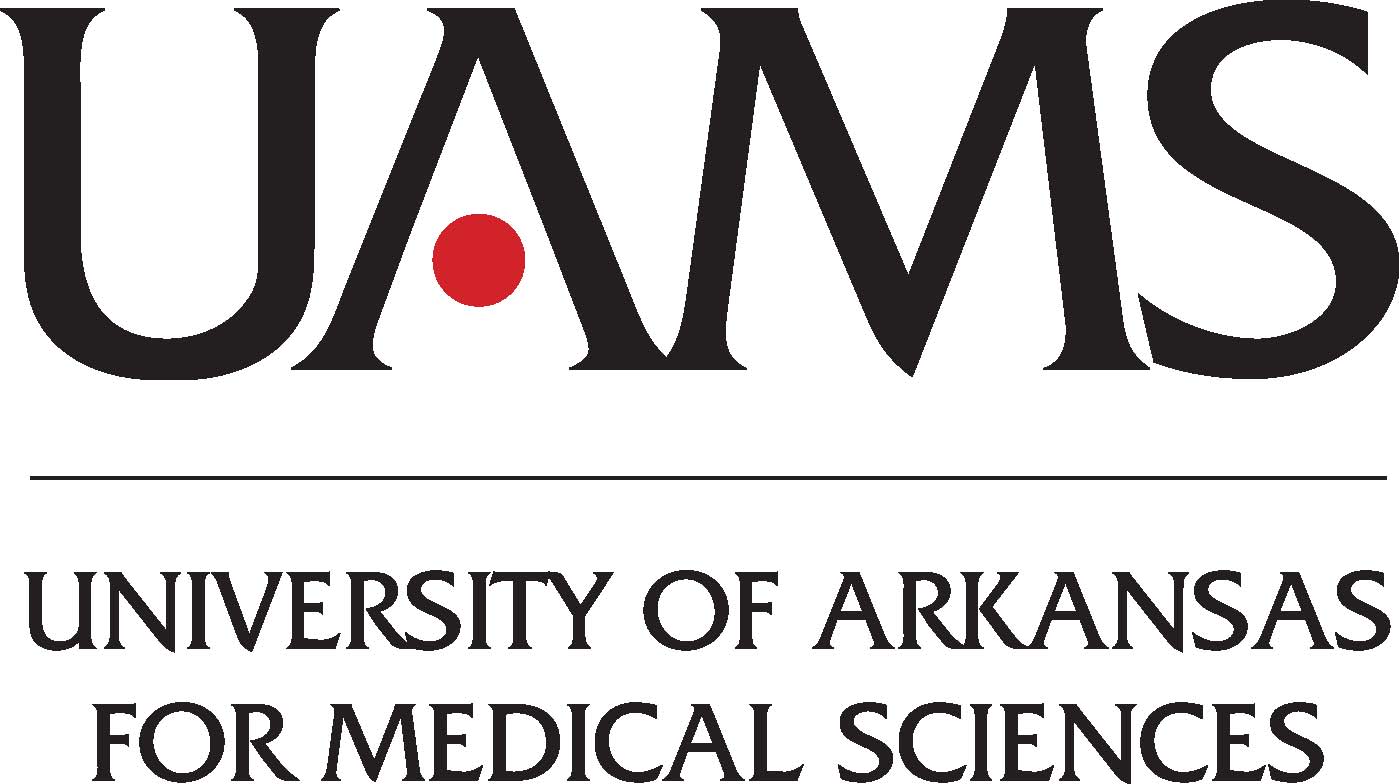
University of Arkansas for Medical Sciences The University of Arkansas for Medical Sciences (UAMS) in...
Click here to add this to my saved trials
North Shore University Hospital North Shore-LIJ Health System includes 16 award-winning hospitals and nearly 400...
Click here to add this to my saved trials
Beth Israel Med Ctr The physicians and staff of Mount Sinai Beth Israel's Heart Institute...
Click here to add this to my saved trials
UMDNJ-New Jersey Medical School NJMS is committed to educating humanistic, culturally competent physicians who will...
Click here to add this to my saved trials
401 College Street
Richmond, Virginia 23298
Richmond, Virginia 23298
(804) 828-0450

Virginia Commonwealth University Massey Cancer Center Founded in 1974, VCU Massey Cancer Center is a...
Click here to add this to my saved trials
Avera Cancer Institute Avera, the health ministry of the Benedictine and Presentation Sisters, is a...
Click here to add this to my saved trials
Click here to add this to my saved trials
Abington Memorial Hospital Abington Memorial Hospital (AMH) is a 665-bed, regional referral center and teaching...
Click here to add this to my saved trials
Akron General Medical Center It
Click here to add this to my saved trials
Click here to add this to my saved trials
Click here to add this to my saved trials
Click here to add this to my saved trials
Click here to add this to my saved trials
Click here to add this to my saved trials
McFarland Clinic PC-William R Bliss Cancer Center The William R. Bliss Cancer Center at Mary...
Click here to add this to my saved trials
AnMedical Health Cancer Center Cancer is the general term for a group of more than...
Click here to add this to my saved trials
Saint Joseph Mercy Hospital St. Joseph Mercy Ann Arbor Hospital is a 537-bed teaching hospital...
Click here to add this to my saved trials
Click here to add this to my saved trials
Click here to add this to my saved trials
Click here to add this to my saved trials
Randolph Hospital Since 1932, Randolph Hospital has been fortunate to employ dedicated and loyal personnel...
Click here to add this to my saved trials
Click here to add this to my saved trials
5665 Peachtree Dunwoody Rd NE
Atlanta, Georgia 30342
Atlanta, Georgia 30342
(678) 843-7001

Saint Joseph's Hospital of Atlanta Founded by the Sisters of Mercy in 1880, Saint Joseph
Click here to add this to my saved trials
Click here to add this to my saved trials
Click here to add this to my saved trials
Piedmont Hospital For more than a century, Piedmont Healthcare has been a recognized leader in...
Click here to add this to my saved trials
Northside Hospital Northside Hospital-Atlanta (in Sandy Springs) opened in 1970. The original facility had 250...
Click here to add this to my saved trials
Click here to add this to my saved trials
Click here to add this to my saved trials
Medical Center of Aurora At The Medical Center of Aurora and Centennial Medical Plaza patients...
Click here to add this to my saved trials
Click here to add this to my saved trials
13001 E. 17th Pl.
Aurora, Colorado 80045
Aurora, Colorado 80045
303-724-5000

University of Colorado Cancer Center - Anschutz Cancer Pavilion The University of Colorado Denver |...
Click here to add this to my saved trials
Click here to add this to my saved trials
Click here to add this to my saved trials
Click here to add this to my saved trials
Sinai Hospital of Baltimore Sinai Hospital of Baltimore provides a broad array of high-quality, cost-effective...
Click here to add this to my saved trials
Greater Baltimore Medical Center The 255-bed medical center (acute and sub-acute care) is located on...
Click here to add this to my saved trials
22 South Greene Street
Baltimore, Maryland 21201
Baltimore, Maryland 21201
410-328-7904

University of Maryland Greenebaum Cancer Center The University of Maryland Marlene and Stewart Greenebaum Cancer...
Click here to add this to my saved trials
Click here to add this to my saved trials
Click here to add this to my saved trials
Click here to add this to my saved trials
Bronson Battle Creek As a proud member of the Battle Creek community, we believe everyone...
Click here to add this to my saved trials
1600 Albany Street
Beech Grove, Indiana 46107
Beech Grove, Indiana 46107
(317) 787–3311

Saint Francis Hospital and Health Centers St. Francis Hospital and Health Centers is a general...
Click here to add this to my saved trials
Mary Rutan Hospital The hospital was endowed by the sale of a farm in Ridgeway...
Click here to add this to my saved trials
Click here to add this to my saved trials
Click here to add this to my saved trials
Click here to add this to my saved trials
Click here to add this to my saved trials
Click here to add this to my saved trials
Montana Cancer Consortium CCOP The Montana Cancer Consortium is a nonprofit organization whose mission is...
Click here to add this to my saved trials
Click here to add this to my saved trials
Saint Vincent Healthcare The Sisters of Charity of Leavenworth, Kansas, founded St. Vincent Healthcare in...
Click here to add this to my saved trials
Click here to add this to my saved trials
Mid Dakota Clinic, PC We're your family clinic, with the doctors you know and trust...
Click here to add this to my saved trials
Saint Alexius Medical Center St. Alexius Medical Center is a 306-bed, full-service, acute care medical...
Click here to add this to my saved trials
Sanford Bismarck Medical Center Whether your stay in our hospital is one day for same...
Click here to add this to my saved trials
Click here to add this to my saved trials
Illinois CancerCare-Bloomington Illinois CancerCare, P.C. is a comprehensive practice treating patients withcancer andblood diseases. Our...
Click here to add this to my saved trials
Click here to add this to my saved trials
Dana-Farber Cancer Institute Since it’s founding in 1947, Dana-Farber has been committed to providing adults...
Click here to add this to my saved trials
Massachusetts General Hospital Cancer Center An integral part of one of the world
Click here to add this to my saved trials
Boulder Community Hospital Founded in 1922 as a community-owned and operated not-for-profit hospital, Boulder Community...
Click here to add this to my saved trials
Bozeman Deaconess Cancer Center Bozeman Deaconess Cancer Center provides the latest cancer technologies and treatment...
Click here to add this to my saved trials
Bozeman Deaconess Hospital Bozeman Deaconess Hospital is a Joint Commission certified, licensed Level III trauma...
Click here to add this to my saved trials
Click here to add this to my saved trials
Click here to add this to my saved trials
Bryn Mawr Hospital Bryn Mawr Hospital, a nationally recognized community teaching hospital, is conveniently located...
Click here to add this to my saved trials
Click here to add this to my saved trials
Click here to add this to my saved trials
Click here to add this to my saved trials
Click here to add this to my saved trials
Click here to add this to my saved trials
Fairview Ridges Hospital Fairview Ridges Hospital is a 150-bed, Level III Trauma Care facility, offering...
Click here to add this to my saved trials
400 South Clark Street
Butte, Montana 59701
Butte, Montana 59701
406-723-2500

Saint James Community Hospital and Cancer Treatment Center St. James Healthcare has played an important...
Click here to add this to my saved trials
Click here to add this to my saved trials
Illinois CancerCare - Canton Illinois CancerCare is one of the largest private oncology and hematology...
Click here to add this to my saved trials
Click here to add this to my saved trials
Aultman Health Foundation The Aultman Foundation will raise and administer funds in order to support...
Click here to add this to my saved trials
Illinois CancerCare - Carthage Illinois CancerCare, P.C. is a comprehensive practice treating patients withcancer andblood...
Click here to add this to my saved trials
Memorial Hospital Memorial Hospital is a vital force in establishing and maintaining the well-being of...
Click here to add this to my saved trials
Rocky Mountain Oncology Rocky Mountain Oncology Center is a spacious, comfortable, state-of-the-art 19,000 square foot...
Click here to add this to my saved trials
Sandra L. Maxwell Cancer Center The Huntsman-Intermountain Cancer Center at Valley View Medical Center in...
Click here to add this to my saved trials
Click here to add this to my saved trials











